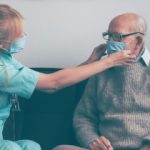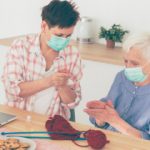Sepsis Recovery in the Elderly: An In-Depth Guide
Sepsis is a critical medical condition that emerges from the body’s overwhelming response to infection, leading to tissue and organ damage. The sepsis recovery time in elderly can be particularly daunting due to their age-specific vulnerabilities. Grasping these complexities is pivotal for deploying effective treatment strategies and boosting recovery outcomes.
Understanding sepsis recovery in elderly Sepsis frequently arises in elderly patients from commonplace infections such as urinary tract infections, pneumonia, or skin infections. Elderly individuals are particularly prone to septicemia in old age, compounded by their diminished immune responses and existing chronic conditions. The rapid progression of sepsis infection in elderly patients underscores the necessity for swift detection and initiation of treatment.
Sepsis and Elderly: Symptoms and Diagnosis Prompt recognition of sepsis signs in older adults is critical for early intervention. Typical indicators include fever, chills, accelerated heart rate, and confusion. Diagnosing a blood infection elderly necessitates comprehensive medical evaluations, like blood tests and imaging studies, where early detection significantly heightens the odds of a successful recovery.
Initial Treatment and Hospital Care Following a sepsis diagnosis, immediate medical action is required. Treatment protocols often comprise antibiotics, intravenous fluids, and medications to maintain blood pressure. In cases of septic shock in elderly patients — a particularly severe sepsis manifestation — intensive care is vital to stabilize essential bodily functions. The intensive care unit plays a crucial role in managing sepsis, ensuring both survival and the beginning of recovery.
Stages of sepsis recovery elderly Recovery times for sepsis in old people vary and are typically segmented into several phases:
- Acute Recovery Phase: This initial phase immediately follows treatment, focusing on stabilizing the patient’s condition.
- Sub-Acute Recovery Phase: Extending from weeks to a few months post-treatment, this period involves ongoing medical support and rehabilitation efforts.
- Long-Term Recovery Phase: This phase is crucial for ongoing recovery and monitoring, aimed at managing persistent symptoms and preventing relapses.

Recovery from sepsis in elderly patients demands a holistic approach. Rehabilitation activities and physical therapy are essential to restore strength and mobility. Proper nutrition and hydration play critical roles in healing, while continuous management of chronic symptoms and the prevention of subsequent blood infections in elderly patients are fundamental.
Physical and Emotional Recovery Post-sepsis syndrome, encompassing cognitive and emotional challenges, affects many patients. Access to counseling and mental health support can yield significant benefits, assisting in the comprehensive recovery process.
Prevention of Sepsis Recurrence Lifestyle modifications and preventative strategies are essential to fend off further incidents of sepsis. Regular medical evaluations and monitoring facilitate the early spotting of infections, while vaccinations and preventive healthcare substantially lessen the likelihood of another blood infection in the elderly.
Support Systems and Resources Understanding and managing sepsis in seniors requires an all-encompassing approach. Awareness of the various recovery stages and related symptoms helps in providing timely and effective treatment. Community resources and support groups play supportive roles for patients undergoing sepsis recovery, while caregivers are indispensable in managing daily health requirements.
Explore the possible specialized care for elderly people with our programs Angel Care Inc.. Our medically trained caregivers are adept at recognizing early-stage illnesses and providing critical support during treatment and recovery. Visit our website today to discover how we can help you manage sepsis recovery among other health needs for your elderly family members.

Pneumonia is a significant health concern, especially in elderly populations where it tends to present more severe challenges and complications. Recognizing the stages of pneumonia can play a crucial role in timely diagnosis and effective treatment. This guide delves into the question “what are the stages of pneumonia?”, to aid caregivers and family members in better understanding and managing the illness. Pneumonia in elderly patients is not just a severe lung infection but a life-threatening condition that demands prompt attention. Understanding the stages of disease — from the pre pneumonia stage to critical care — helps in crafting a tailored approach for treatment and recovery. Early Stages of Pneumonia Early stages pneumonia symptoms can be subtle and often overlooked. It might include mild fever, cough, and general malaise, which are often mistaken for a common cold. This stage is crucial for preventing the progression of the disease through early intervention. Pneumonia Stages Symptoms Each of four stages of pneumonia comes with its own set of symptoms. Early stages often involve mild symptoms, which become more severe and debilitating as the condition worsens. Recognizing these symptoms early on can be pivotal in preventing the progression, where treatment becomes more complex and the risk of mortality increases. First stage of pneumonia characterized by localized inflammation and the beginning of lung infection. Patients might experience coughing, slight fever, and chest discomfort. The second stage of pneumonia, often referred to as the red hepatization phase, involves significant changes in the lungs. During this stage, the alveoli fill with red blood cells, immune cells, and fibrin, causing the lung tissue to become dense and firm. Patients typically experience heightened symptoms, including a higher fever, a productive cough with rust-colored sputum, chest pain, and increased difficulty breathing. Prompt medical intervention is essential at this stage to manage these symptoms effectively and to prevent the condition from worsening. Stage 3 pneumonia is known as the grey hepatization phase and is marked by the continued solidification of the lung tissue. At this stage, red blood cells in the alveoli begin to break down. Symptoms typically intensify, with patients experiencing severe cough, increased sputum production that may appear purulent, persistent high fever, chest discomfort, and significant difficulty in breathing. This stage demands urgent medical care to address the severe symptoms and to halt further progression of the disease. Stage 4 pneumonia: This is the most severe form of pneumonia. Patients often require hospitalization and intensive care due to severe respiratory distress, potential oxygen deprivation, and other organ complications. Special Considerations for the Elderly Elderly patients are at a higher risk due to weaker immune systems and often preexisting conditions that can exacerbate pneumonia. The progression from the beginning stages of pneumonia to more severe forms can be rapid, necessitating vigilant monitoring and immediate medical intervention. Lobar pneumonia that affects one or more lobes of the lungs, progresses through specific stages. Lobar pneumonia stages include congestion, red hepatization, grey hepatization, and resolution, each presenting unique challenges and requiring specific treatment strategies. Recovery from pneumonia The stages of pneumonia recovery in elderly patients typically involve overcoming the acute phase, followed by gradual improvement of lung function. Awareness of the specific stages of pneumonia and their associated symptoms can significantly aid in timely and effective treatment, potentially saving lives. Discover Angel Care's Elder Care Programs We offer specialized programs staffed with medically trained caregivers who can identify illnesses at their early stages and provide essential support during treatment, including for conditions like pneumonia. Ensure your loved ones receive the best possible care by exploring with Angel Care Inc. comprehensive elder care services today. Visit our website to learn more and take the first step towards providing the highest quality of care for your family members.

Crafting offers a wonderful avenue for seniors to remain active and engaged. Whether they're in nursing homes, at community centers, or comfortably at home, senior citizens crafts provide essential mental and physical stimulation. This guide presents a variety of crafting ideas suitable for seniors, focusing on easy and accessible projects that cater to the needs of elderly individuals. Selecting the Right Craft ideas elderly Choosing appropriate crafts is crucial. It's essential to consider the physical capabilities, interests, and any limitations of the seniors. Crafts for elderly easy handling are not only fulfilling but should also be manageable and safe, minimizing frustration and maximizing enjoyment. Art for seniors ideas There are several crafts that are particularly well-suited for seniors, including: Knitting and Crocheting: These activities are perfect as arts and crafts for older adults, helping to improve fine motor skills with projects like scarves, hats, or blankets that offer tangible rewards. Painting and Drawing: Art for seniors might include a variety of styles and techniques, such as watercolor, acrylics, or charcoal drawing, which are excellent for self-expression and enhancing cognitive function. Sculpting with Clay: This tactile activity allows seniors to mold and create with their hands, which is excellent for maintaining dexterity. Jewelry Making: Crafting necklaces or bracelets with beads and other materials makes for enjoyable and easy crafts for seniors citizens, fostering fine motor skills and artistic expression. Woodworking: Simple woodworking projects like birdhouses or picture frames are great crafts for senior adults, offering both a sense of accomplishment and physical engagement. Arts and Craft for the Elderly Involving seniors in making seasonal decorations can inject a festive spirit into their surroundings. This could include crafting Christmas wreaths, decorating pumpkins for Halloween, or creating floral arrangements for spring. Recycling old items into new crafts can also be both eco-friendly and creatively fulfilling. For instance, transforming old jars into painted vases or crafting collage art from scraps are excellent craft ideas for the elderly. Crafts to do with seniors can also contribute to the community. Projects such as knitting scarves for homeless shelters or making quilts for children in hospitals add a layer of purpose to their crafting endeavors, enhancing emotional well-being. Furthermore, crafts for seniors in nursing homes and community centers can facilitate social interaction. Organizing group crafting sessions helps seniors forge new friendships, share skills, and enjoy companionship. Leveraging Technology for New Ideas Seniors can also use technology to find new crafting ideas. Numerous websites and apps provide a wealth of arts and craft ideas for the elderly, complete with tutorials and step-by-step instructions, simplifying the process of starting new projects. Ensuring Safe Crafting Environments When engaging in any craft, it's crucial to ensure that the environment is safe for seniors. Proper lighting, safe, non-toxic materials, and ergonomic tools are essential to prevent any potential injuries. Art and craft ideas for seniors serve as a therapeutic and fulfilling outlet, providing both creative expression and practical skill development. With a broad range of suitable options, every senior can find a craft that brings enjoyment and a sense of achievement. Explore Angel Care Programs Learn more about how Angel Care Inc. programs can enhance the lives of seniors through crafting and other activities.Visit our website to discover the programs support senior creativity and well-being, ensuring a vibrant and engaging lifestyle for every senior citizen.



